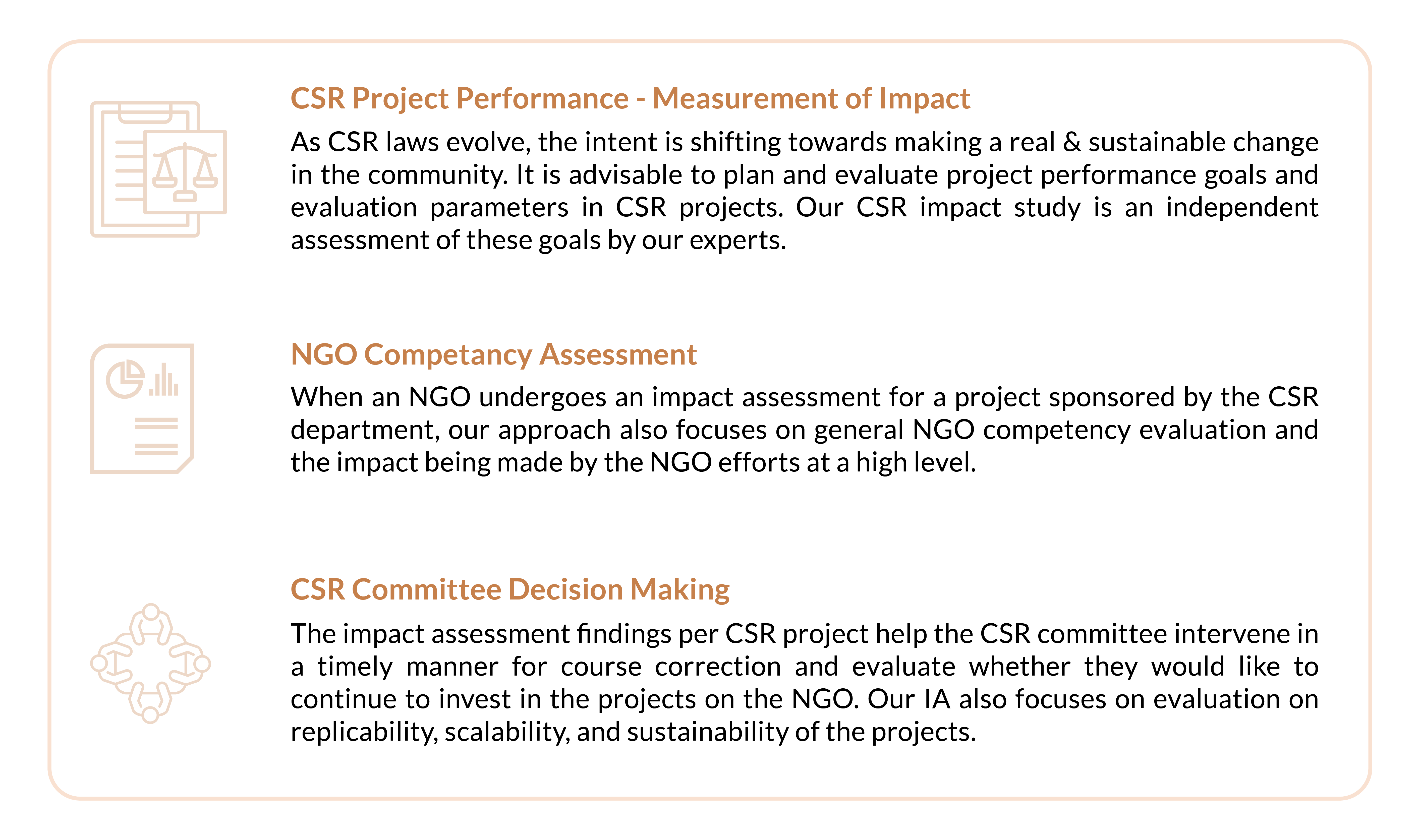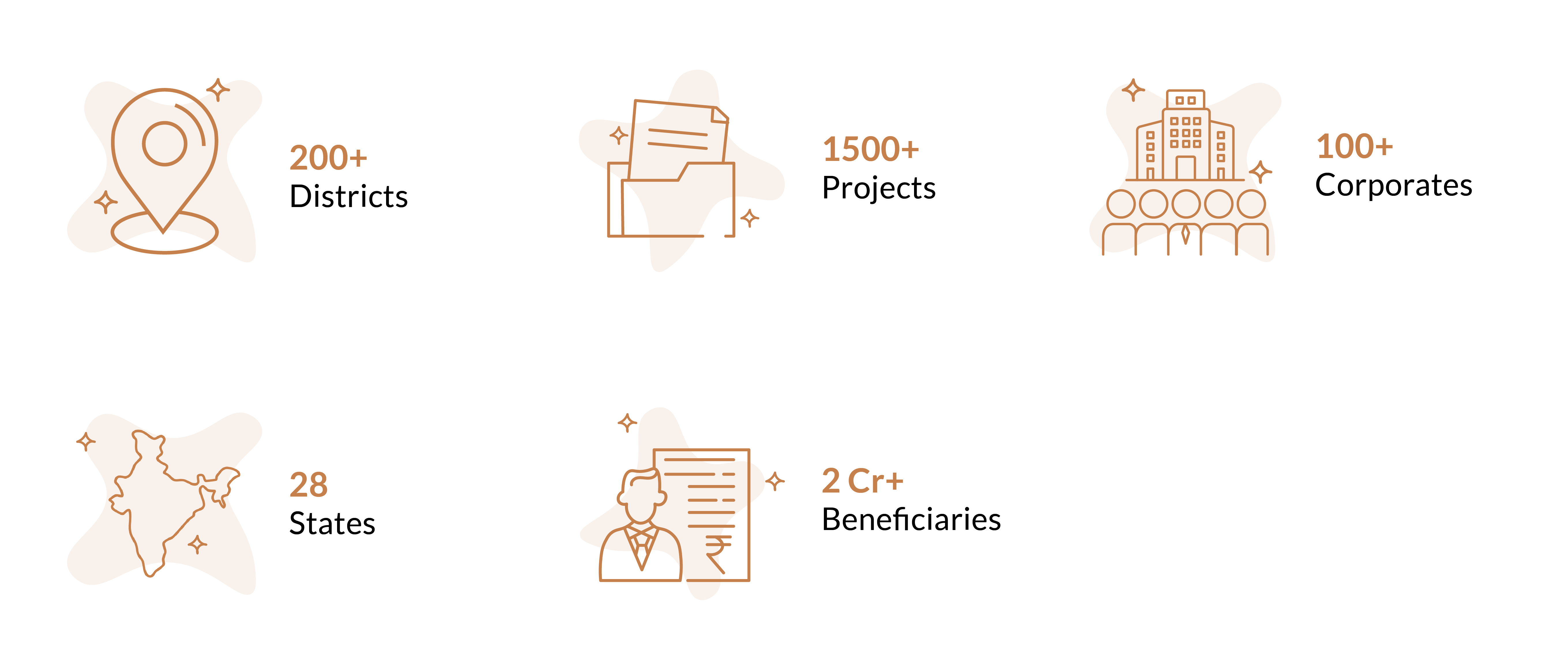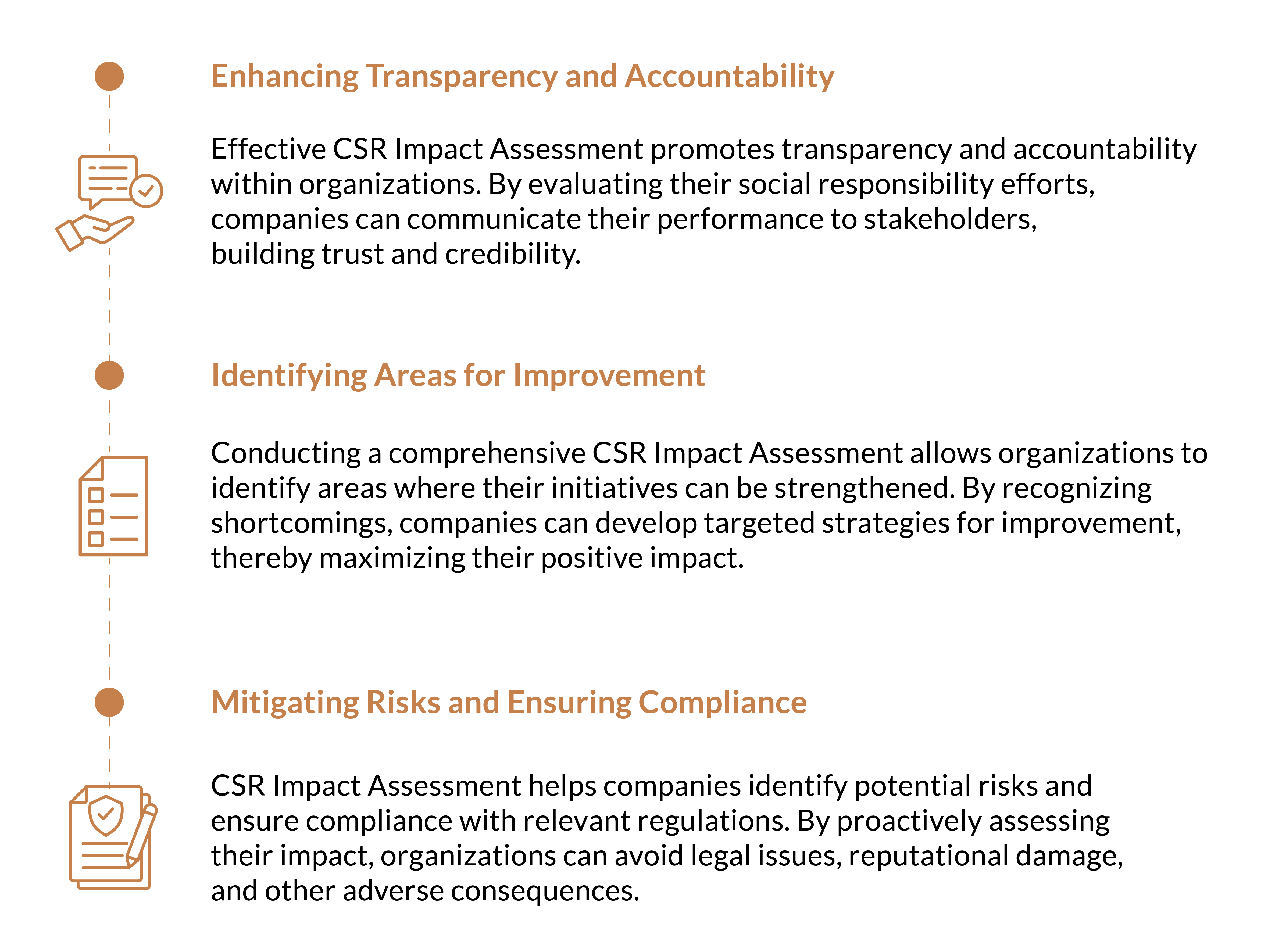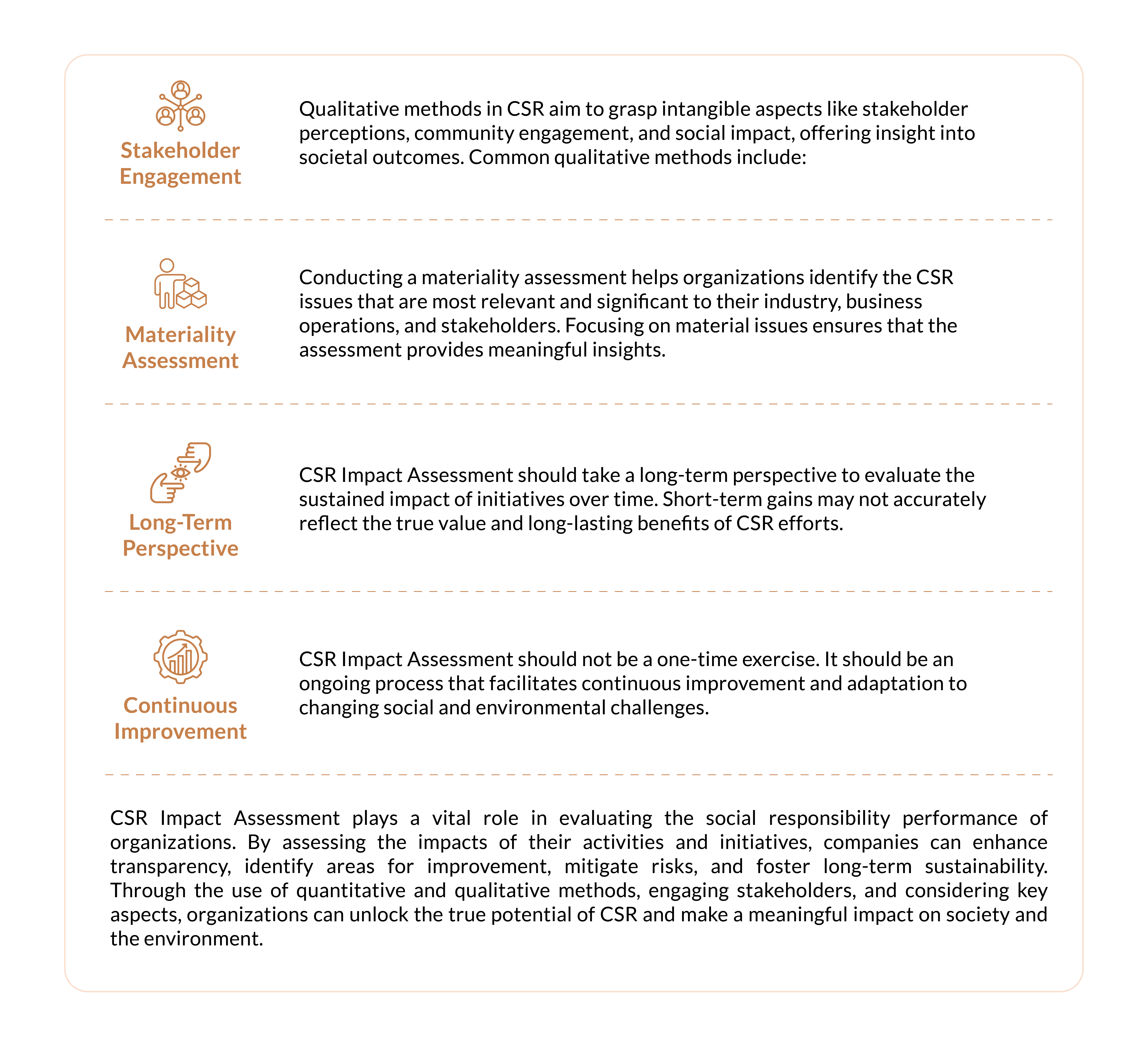
Impact Assessment is typically performed for projects sponsored by CSR departments and foundations. Many CSR departments and foundations focused on evaluating the impact on the community due to various initiatives undertaken by them either hire an external agency or perform Impact Assessment on their own. In 2021, the CSR law in India has made it mandatory to perform Impact Assessment for CSR projects.
The primary aim of SoulAce, the best CSR consulting firm, is to help companies in India to embrace CSR activities. And we extend our helping hand to corporates with resources and enable them to build strategies to impact sustainable community development. We are highly skilled in CSR Impact Assessment as we have worked with 150 plus corporate and covering 200 plus districts across the country. SoulAce also helps scale CSR programs and replicate impactful capabilities in other geographies. Our baseline studies have helped many corporate companies and conglomerates to set up the right project. CSR Impact assessment is conducted at the end of the project.

Our CSR Impact assessment approach is based on the OECD framework and expertise. Once we are on boarded by the CSR department for impact assessment, we review the project documentation available with them and get in touch with NGOs. Once we have a detailed discussion with NGOs, we design our customized assessment approach involving beneficiary interviews, focus group discussions, stakeholder interviews, etc. The data collected through various discussions is collated, validated, and analyzed to assess the impact created by a CSR project.
Having the vintage of working for 14 years in the development sector and presence in 200+ districts across 28 States, SoulAce is able to create a rich pool of experts across thematic areas and has established itself as the Best CSR Impact Assessment firm in India.

There is a growing importance for companies today to accomplish CSR goals as a way to give back to society. And it has become critical as well as mandatory in India for companies to prioritize social responsibility. A Corporate Social Responsibility Impact Assessment is needed to evaluate the social impact of a CSR project. With the CSR Impact Assessment report, a company can measure the impact quantitatively to benefit society at large. It also provides a holistic insight into the development of the community


In today's corporate landscape, the concept of corporate social responsibility (CSR) has gained significant prominence. As companies strive to make a positive impact on society and the environment, conducting a thorough CSR Impact Assessment becomes crucial. By evaluating their social responsibility footprint, organizations can measure the effectiveness of their initiatives and identify areas for improvement. This article delves into the realm of CSR Impact Assessment, exploring its importance, methodologies, and key considerations.
CSR Impact Assessment refers to the systematic evaluation of a company's activities and initiatives in terms of their social, economic, and environmental impacts. It involves analyzing the effects of these activities on various stakeholders, including employees, customers, communities, and the environment. By conducting such assessments, companies can gain insights into their overall social responsibility performance and determine the extent of their positive or negative influence.


Quantitative methods in CSR focus on measuring tangible outcomes and impacts through statistical analysis and numerical data Some common quantitative methods include:

Qualitative methods in CSR aim to grasp intangible aspects like stakeholder perceptions, community engagement, and social impact, offering insight into societal outcomes. Common qualitative methods include:


The purpose of CSR Impact Assessment is to evaluate the social, economic, and environmental impacts of a company's activities and initiatives. It helps organizations measure their social responsibility performance, identify areas for improvement, and ensure transparency and accountability.
Rule 8(3) of the Companies (CSR Policy) Rules, 2014 mandates following class of companies to conduct impact assessment: (i) companies with minimum average CSR obligation of Rs. 10 crore or more in the immediately preceding 3 financial years; and (ii) companies that have CSR projects with outlays of minimum Rs. 1 crore and which have been completed not less than 1 year before undertaking impact assessment. Impact assessment shall be carried out project-wise only in cases where both the above conditions are fulfilled. In other cases, it can be taken up by the company on a voluntary basis.
For companies undertaking CSR Impact Assessment Voluntarily, the frequency of CSR Impact Assessments depends on various factors, including the size of the organization, industry norms, and the scope of CSR initiatives. Ideally, companies should conduct assessments periodically to track progress and adapt to changing circumstances.
Rule 8(3) of the Companies (CSR Policy) Rules, 2014 requires that the impact assessment be conducted by an independent agency. The Board has the prerogative to decide on the eligibility criteria for selection of the independent agency for impact assessment.
Yes, several international standards and frameworks guide CSR Impact Assessment. The Global Reporting Initiative (GRI) offers comprehensive guidelines for reporting social and environmental impacts. The ISO 26000 provides guidance on social responsibility, including assessment and performance evaluation.
Rule 8(3)(b) of the Companies (CSR Policy) Rules, 2014 provides that impact assessment reports shall be placed before the Board and shall be annexed to the report on CSR. It is clarified that web-link to access the complete impact assessment reports and providing executive summary of the impact assessment reports in the annual report on CSR, shall be considered as sufficient compliance of the said rule.
Organizations can ensure the accuracy and credibility of their CSR Impact Assessments by adhering to recognized standards and frameworks, employing robust methodologies, and engaging external stakeholders for independent validation. Transparency in data collection and reporting processes also enhances credibility.
Yes, CSR Impact Assessment can help attract and retain talent. Employees, particularly millennials and Gen Z, are increasingly drawn to companies with a strong commitment to social responsibility. Assessing and showcasing positive social impact can enhance the employer brand and improve employee satisfaction.
Yes, CSR Impact Assessment can drive innovation and business growth. By evaluating the social and environmental impacts of their activities, companies can identify opportunities for innovation that align with sustainability goals. This can lead to the development of new products, services, and business models, enhancing competitiveness and driving growth.

Corporate Social Responsibility (CSR) is a key component of organisational operations, with companies looking to have a positive impact on society and the environment. However, measuring the impact of CSR initiatives can be challenging.

Corporate Social Responsibility (CSR) initiatives are becoming increasingly important for companies. It enhances their reputation and demonstrates their commitment to making a positive impact on society and the environment.

Corporate Social Responsibility, or CSR in general, is a set of self-regulating practices that an organization adopts to make itself socially accountable to itself, its stakeholders, and the public.